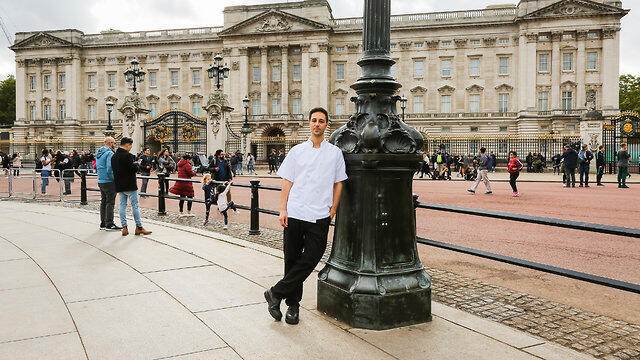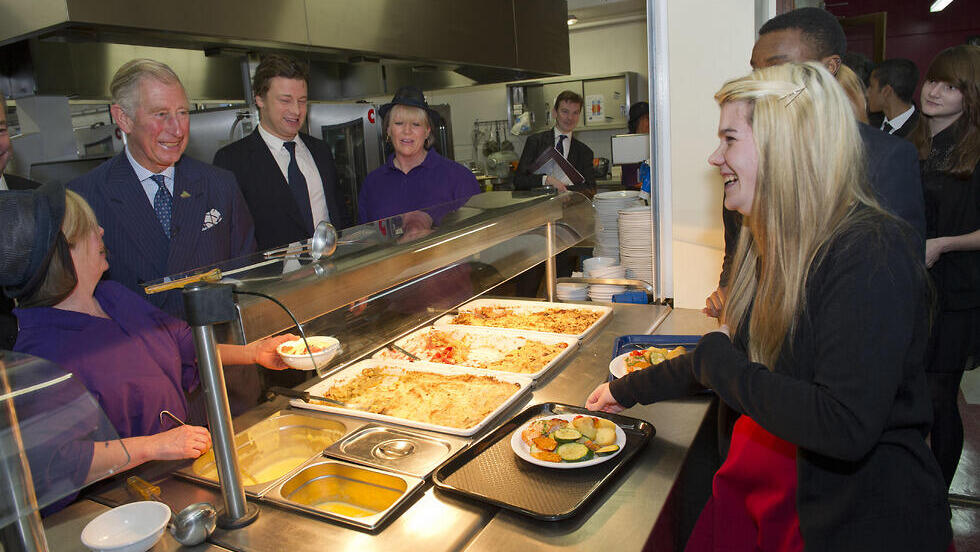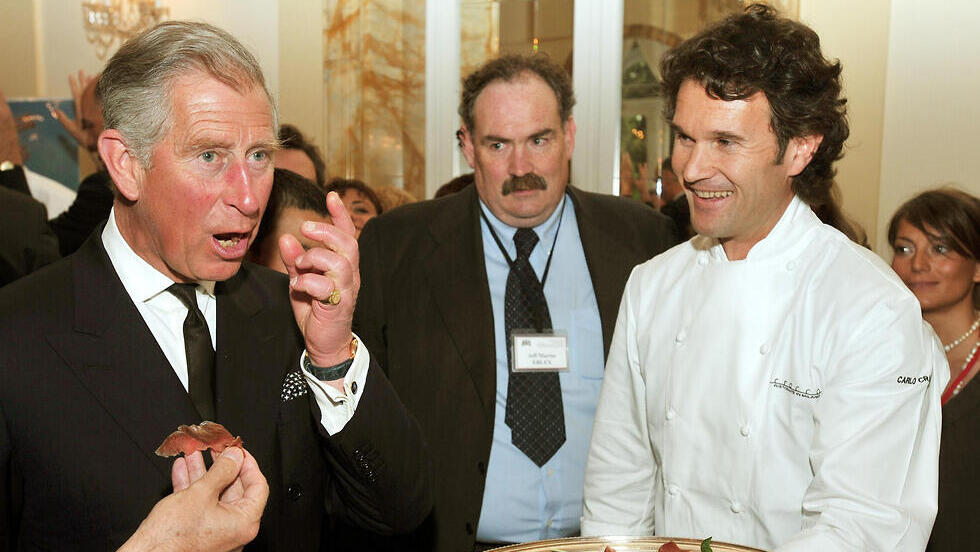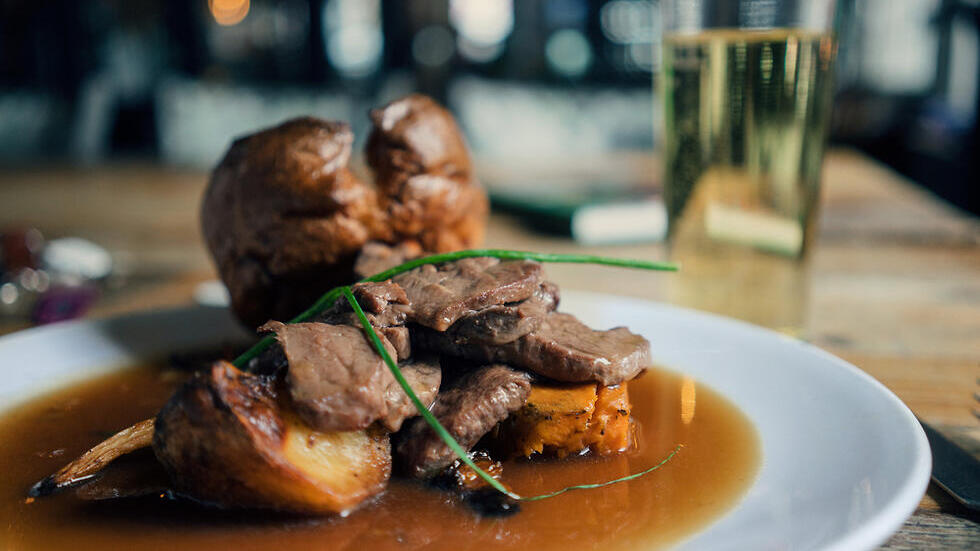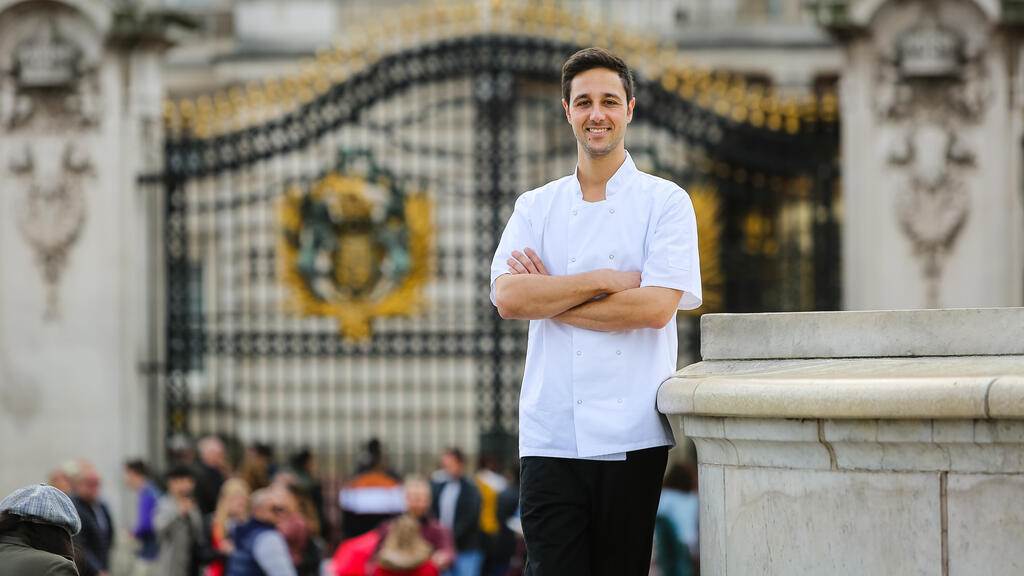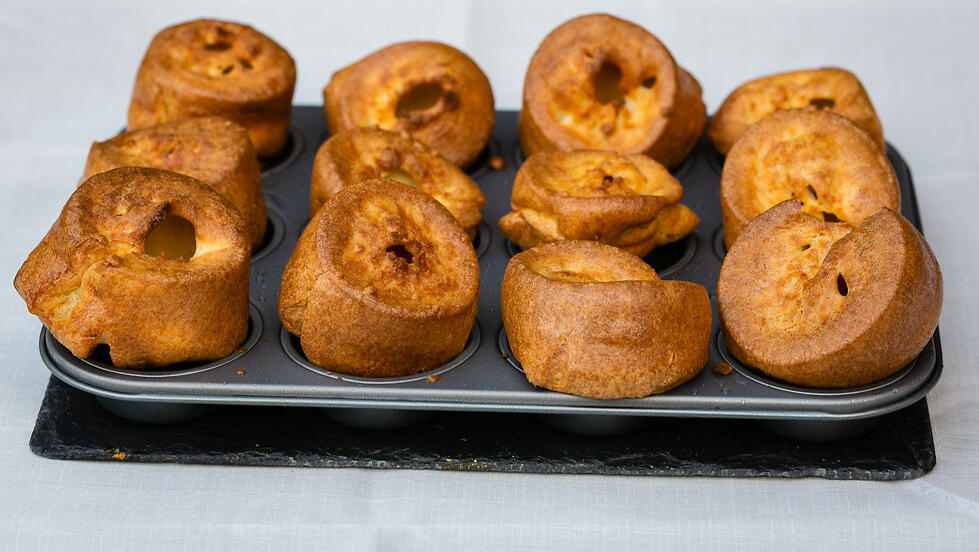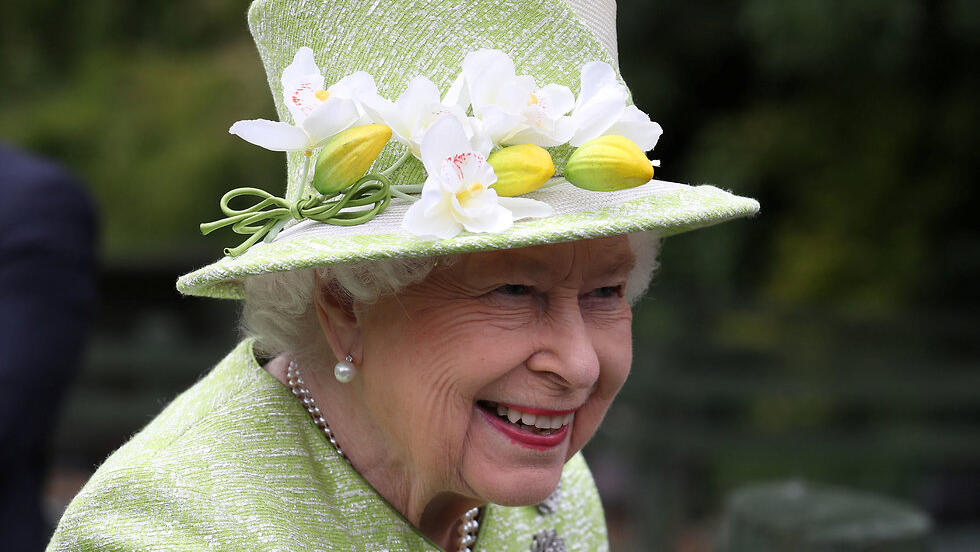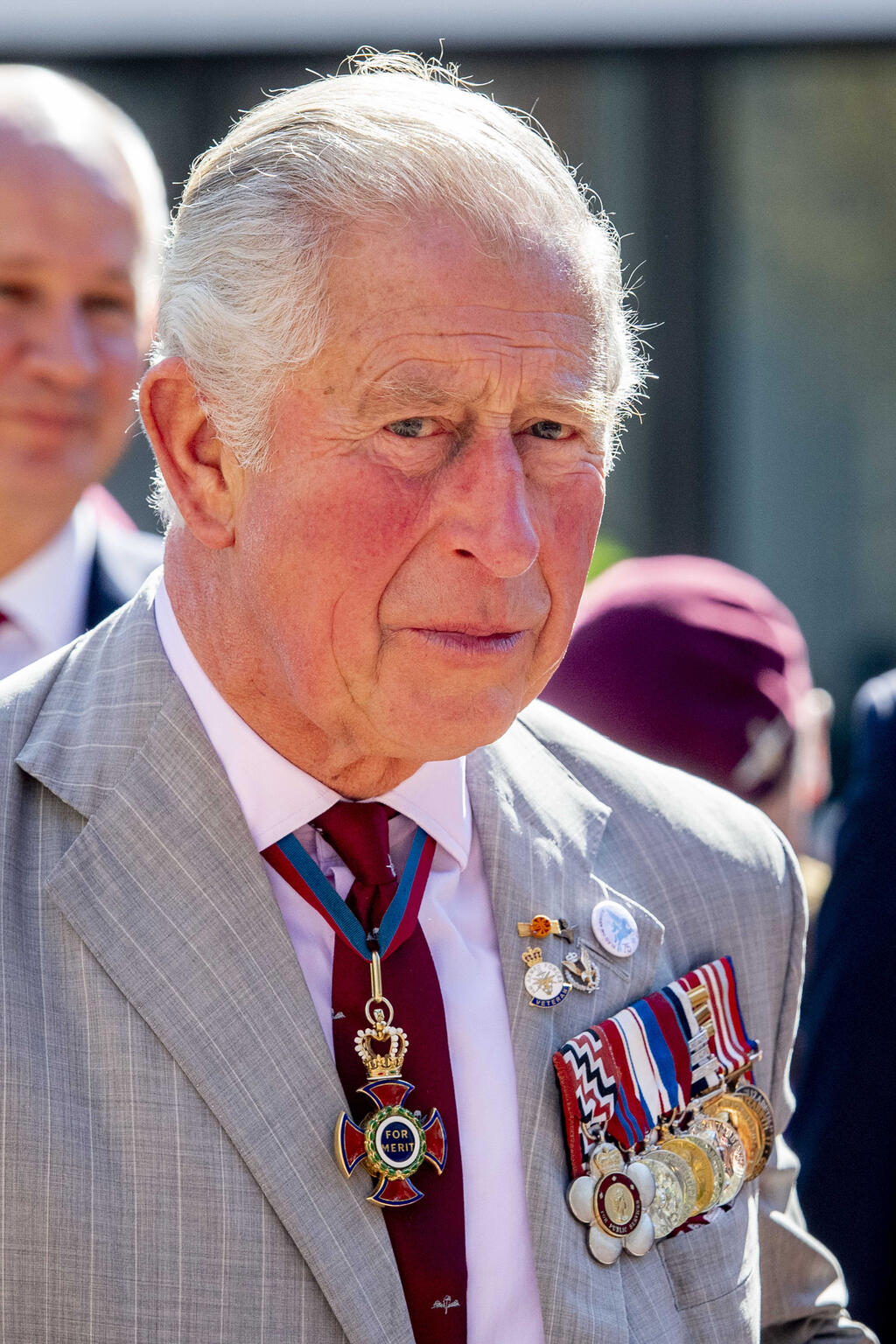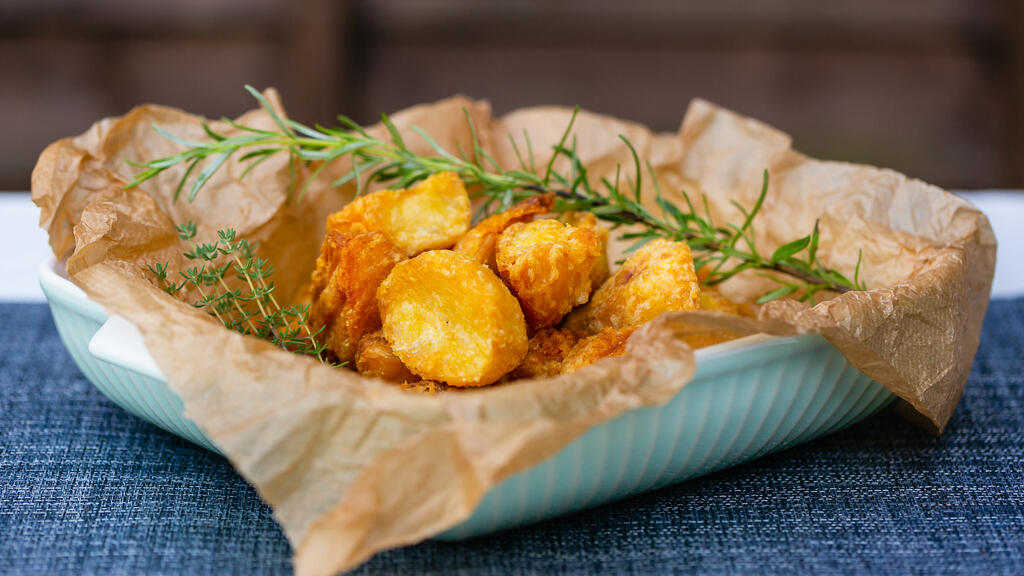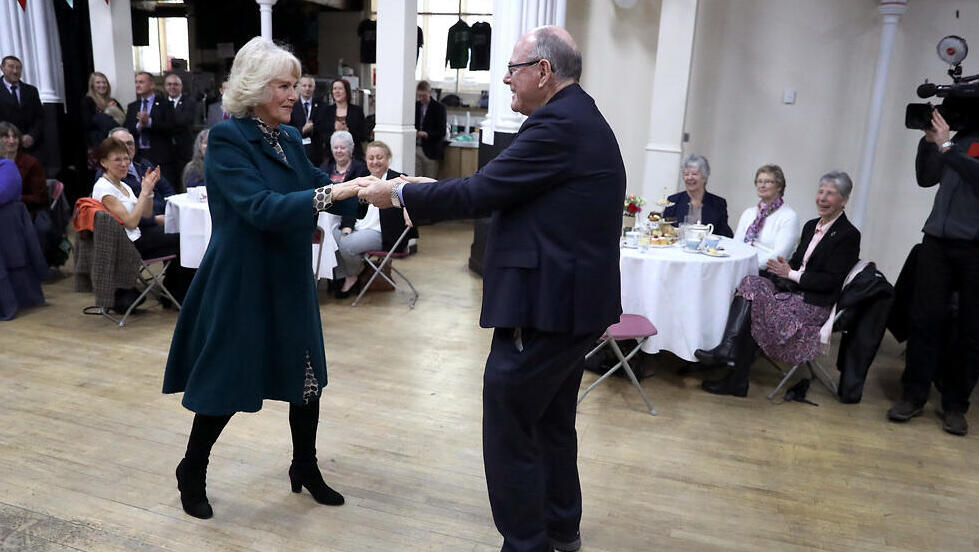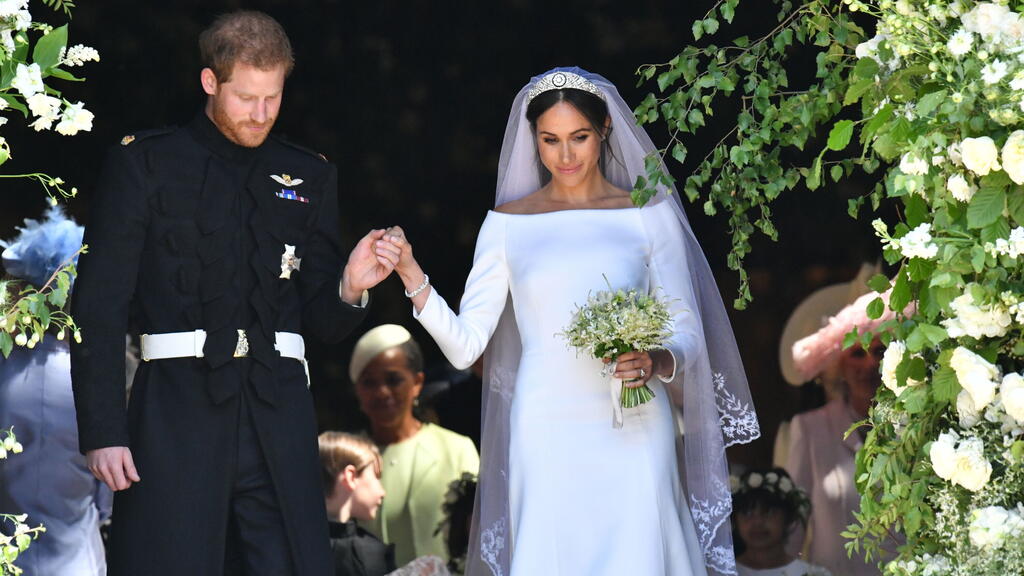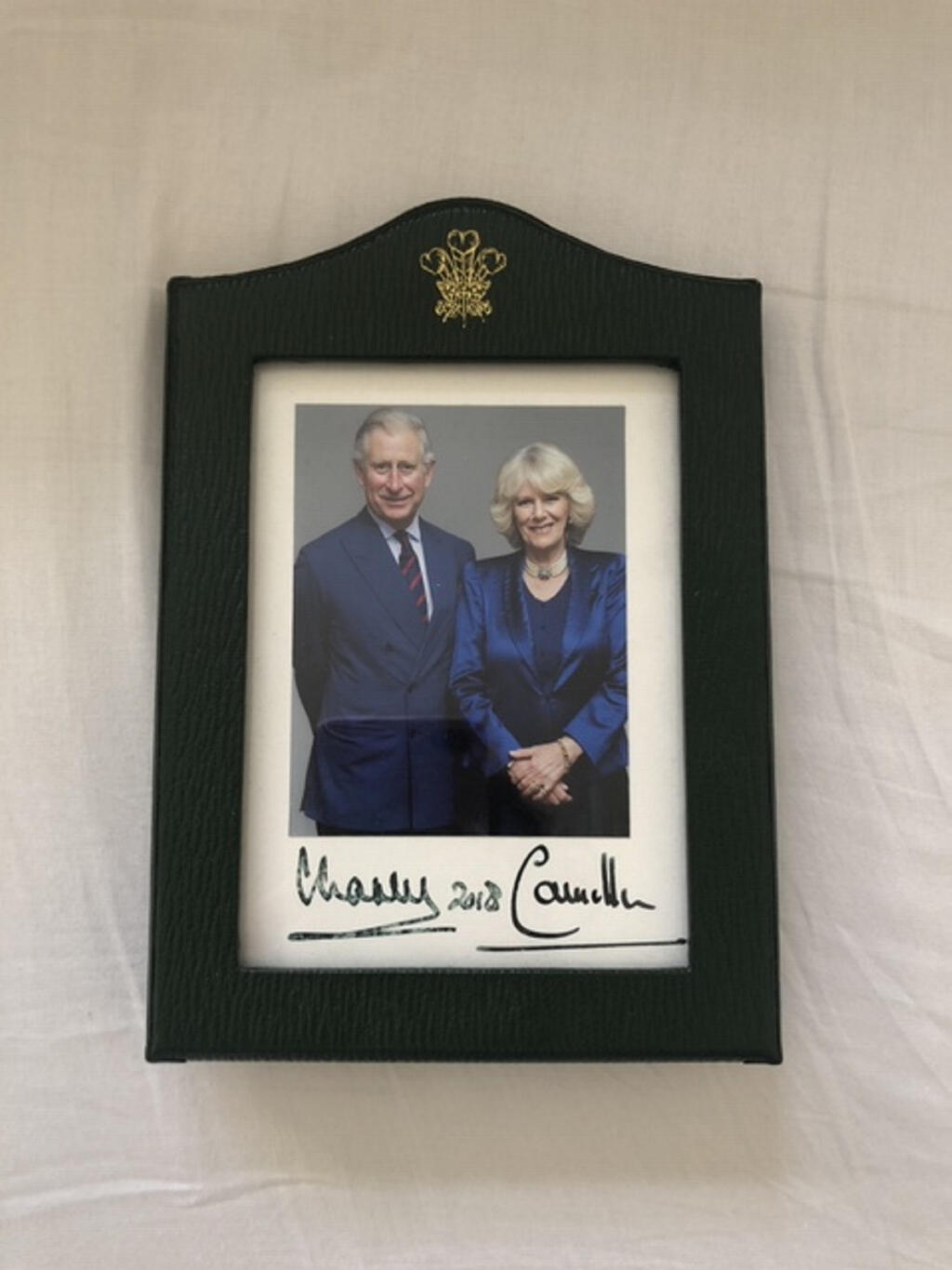Getting your Trinity Audio player ready...
Israeli chef Itay Ben-Dov, who worked as King Charles III and Queen Camilla's private chef while they were still the prince and duchess, resigned from his post some months ago and now reveals exclusive detail about his previous job and royal employers.
"When entering a room with a prince, you must bow in a certain way, with your head down, like a deep nod, and then say, 'Your royal highness,'" Ben-Dov begins.
"You make the first gesture to indicate the prince's presence, and he then will acknowledge you with a small nod of his head. From that moment on, you can't address him. You must wait for him to speak to you. When you reply, you end every sentence with 'sir'.
"When you leave, you don't turn your back to the prince, but take a few steps back, bow your head again, say 'your majesty', and only then turn around and walk away."
Ben-Dov isn't the typical Israeli chef who grew up loving to cook. He was raised in Petah Tikva as a gifted child and diligent student. He received a distinction during his service in the IDF's Artillery Corp and met his wife Carmel on Facebook two weeks before he enlisted. After his service, he wondered what he should pursue in life.
"Carmel offered me to go to culinary school since it was something I was interested in," he says.
So you enjoyed cooking? What would you make?
"I didn’t know how to make anything. I'd make whatever I had in my house at the time, but I had an interest in cooking. My grandmother was a very gracious host, a European woman who knew cooking down to a science. There was something impressive about the way she managed her kitchen, and that's why I wanted to study in London's Le Cordon Bleu."
That's a very expensive establishment to study in
"My parents said they wouldn't pay for my studies before I had some experience in professional kitchens, that's also where I met you."
You feared no one would hire you because you lacked experience, and I told you not to worry because the industry severely lacked manpower
"So I turned to a restaurant in Israel and asked for an interview, where I told them I had no experience and they told me, 'Come to work tomorrow.' I couldn't handle a knife properly, and no one helped me, but I have a strong drive to do things the best that I can, so I bought a knife and some vegetables and practiced. After six months there I felt stuck and decided to head to culinary school."
Following a year of intensive studies, Ben-Dov sent his resume to several restaurants in London and was accepted to the restaurant of Michelin-star chef Marcus Waring's restaurant.
The working conditions at European Michelin restaurants are brutal: 18-hour workdays, not including travel times.
"I'd come home at three in the morning and my wife would be up and making something for me to eat, because I didn't eat anything all day, and I'd have to get up in two hours," he says. "But I gave it my all and the chef liked me. When I resigned, he agreed to give me a letter of recommendation."
Ben-Dov, who has since gotten married, continued to work for acclaimed chef Heston Blumenthal in Windsor, a two-hour drive from London. The standards he discovered in his kitchen were exceptionally high.
"You don’t have a regular grilled chicken at Blumenthal's. First, it'll be salted for two days, then washed for a whole day. Each dish takes three days to prepare. The menu is complex and has many different textures, flavors, and temperatures.
"It's very interesting, but I particularly enjoyed cooking for the team. But after half a year, my body simply began to break down. And I started to wonder if cooking in a restaurant was really for me," he says.
Trapped in a professional kitchen for most of the day, Ben-Dov didn't have much time to think about his next step. Then Carmel, his wife, started sending his resume to job postings for private chefs in London.
"It's not that easy," he explains, "because most notable families in the UK are looking for a chef who's already managed a Michelin-level kitchen, and I didn't fit the bill. But then there was one ad that looked interesting. They were looking for a chef for a well-known family.
"We sent in a resume and the hiring agency got back to me. After a brief interview, they invited me to a meeting at Clarence House. I looked it up on Google because I had no idea what it was and where I was going."
How did you prepare for the job interview at Clarence House?
"The first thing I did was to buy a suit. It was my first one."
Who did you meet?
"I can't really say. But they asked me very strange questions for a job interview, especially for someone who doesn't understand where he is."
Like what?
"For example, 'How would you behave if the Queen entered the kitchen and greeted you?'"
What did you answer?
"I answered with a question, 'I'd greet her politely and continue with what I was doing?' In retrospect, they liked it because I wasn't trying to mingle with the Queen. Two weeks later, they invited me for a practical test.
"They told me to bring my own chef attire and work shoes. When I arrived, they presented me with a chicken, two fish - one flat and one round - and told me to break down the chicken, fillet the fish, and prepare a hollandaise and anglaise sauce. I was lucky to be relatively fresh out of school and knew the basics. It was tough cause I didn't know the kitchen, the stove or even who I was going to be cooking for."
He was told to make a meal which he says was difficult because he did not know the kitchen at all.
Who tasted your dish?
"I am not allowed to say but I can tell you that when I was called into the tasting room I saw the plates were all empty and one of the people there said he could not stop eating the desert."
So you were hired?
"Not yet. There was one more stage I had to pass. I had to meet the prince himself. "I get a call in the middle of my work day at Heston's. I am told to report back to the Clarence House the next day but I knew it would be during my working hours.
"This was my first ever panic attack. I walked into the large refrigerator and tried to calm down and collect my thoughts. The next day I went to work and finished everything I had to do early so that I could leave. Everyone was shocked when I said I had to be somewhere. I jumped in my car and drove the two hours to London.
"On my mind was the fact that I was wearing the same suit I had during my interview, because I don't own another, and I also wondered where I would park in the middle of the day in the center of town. I told myself that in the worse case I would just abandon my car anywhere and even if I get toed away and have to pay the 500-pound ticket, it would be worth it.
It took a further few months before Ben-Dov started to work because of the background checks required but eventually, he did begin to work for the prince.
"I was told that besides preparing delicious food the most important thing about the job was discretion both for security reasons and to maintain the privacy of my employers."
He also understood that he must be on his best behavior even when not in working hours. but, he says towards the end, "I was a bit more British at home and a bit more Israeli at work," he says.
What does that mean?
"To be more direct. The British are more passive-aggressive, and the Israelis are just more aggressive. and I also began playing Israeli music in the kitchen."
In the early days, Ben-Dov mostly prepared meals for the couple's staff but in time, the prince and dutchess became intrigued after hearing good things about the food.
Ben-Dov was told that besides preparing food, the most important thing in his new job is maintaining confidentiality.
"On the first day, they make it clear to you that you’re not allowed to take photos. Only you and a very small group of people really know what is happening there. I worked fewer hours than the restaurant, but I was committed to working around the clock.
“It’s clear to you that the royal family comes first, before anything personal you may have and you can be away for a long time. I had a packed bag with everything I needed -a suit, a change of clothes, clean underwear, shoes, toiletries. So I was always ready."
A suit?
"Yes. That was our dress code."
You didn’t wear an apron and a chef’s hat?
"Not really. I only had my uniform and apron. Whenever I traveled to the prince’s location I needed to be precise, clean, tidy, and shaved. I needed to be nice to everyone I met and interacted with, it’s the British mentality."
And you still have to be ready whenever you’re out, say with friends?
"Always. I can go out with friends. But I can't get drunk. I'm committed to behaving in a certain way no matter what I do. I became more and more British very quickly, it was like I had two identities: the British me at work and the Israeli me at home."
A month and a half after working in the royal family’s kitchen in London, Ben-Dov was sent on his first trip. "It was also the first time I built full course menu by myself. I saw that the meals traditionally included roasted potatoes in goose fat, Yorkshire pudding and roast beef. I thought it was a very heavy meal and wanted to freshen it up with some salads.”
And no one checked your menu?
"No. They trust you. Everybody looked at me with expectation as it was my first meal, and after serving the main course I presented the salads: vegetable salad, eggplant salad, and tahini. The whole table looked shocked.”
They think you’re mad
"Exactly. Years later, someone reminded me of that meal jokingly. After that event, I learned an important lesson about humility. I learned about every dish I prepared before serving it after that.”
Did you stop changing classic British cuisine after that?
"The first month was full of errors, but I was the only one who passed my testing period. More trips followed I learned about food wherever I went. In Scotland, for example, I suddenly encountered ingredients I didn't know: black pudding, white pudding, and fresh game meat."
You must’ve traveled to the same places often
"We went to Scotland a lot and I felt at home there. I already had a permanent room of my own and I knew the local staff. It's hard not to fall in love with Scotland with its clean air and quiet. Also, I got to dance with the Duchess in Scotland."
How did it happen?
"Once a year, they hold a communal event there, and we do the catering. But unlike most events, this time we were also invited to participate. Scottish music began playing and everyone started dancing.
“The duchess approached me and said, 'You have to dance with me.' I had no idea how to Scottish dance, But the duchess took my hand and led me to the dance floor, where she looked like an expert while I could barely move.”
Most of Ben-Dov’s work was preparing meals for the royal couple's family, but gradually the royals began taking an interest in the Israeli chef.
"They were interested in knowing how I was doing. If I was okay. And as they heard good things about my team's food, they were curious about it. Once I made a sandwich for one of the prince's guards, and later he told me that the prince was interested in who made the sandwich and if it was tasty.
“When I made something for my team, the prince also heard about it and how tasty it was. I was then offered to make them a private meal myself.”
What did you prepare?
"I'm not allowed to say."
What does the prince actually eat?
"I'm not allowed to talk about it. We have an official answer, 'seasonal, British, and organic food'."
Were you there when Harry and Meghan got married? How was it?
"The whole team was talking about it. They were very excited. On the day of the wedding, we met at one of the houses, ordered Indian food, and watched the wedding on TV."
Did they invite the team to the wedding?
"Only some of us. We watched the wedding together and whoever was there came back and shared details. There was someone who took a piece of cake and vacuum-sealed it to keep as a souvenir."
Did you always have to act with decorum around the prince?
"You can never call him Charlie, for instance, but it became somewhat less formal with time. Every time I met him, he would ask how I was, and if I had everything I needed. He really cares about his staff.
“One time in Rosh Hashanah he brought me a traditional honey cake. Another time, during an intense summer heat, I went outside and met him. He said commented on the heat, and I replied in Israeli style: 'If you think it's hot here, you wouldn't believe how hot it is in the kitchen'."
Wasn’t that extremely rude?
"It wasn't exactly worded like that, and he laughed. He knew I was joking. But after I returned to the kitchen, a team arrived with the biggest fan I've ever seen in my life."
A few months ago, Ben-Dov left the kitchen at Clarence House. In January, he and his wife, who were expecting their first child during the interview, are supposed to return to Israel.
"I had wonderful years there and learned so much," he says, "but working for the royal family requires you to become a part of it, and put everything else in second place. When we decided to expand our family, I knew I had to make a change. I want my own family. To be present in the lives of my children."
How did you say goodbye?
"I held a farewell talk with my team, and even received a gift from the prince and duchess. A car was waiting for me and it was very emotional. Some of the people cried. The team and the duchess accompanied me to the car, and when I got in they waved me goodbye with gloved hands.”
Was it sad?
"No. it was the end of a beautiful chapter."
Did you receive a recommendation when you left?
"You don’t get a recommendation from the royal house.”
Because it’s enough to tell people you’ve worked for them?
"Exactly."


